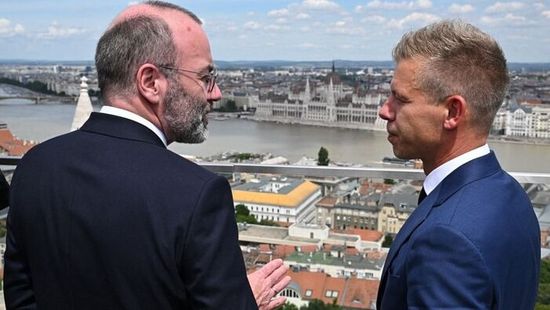Rejtélyes hálószobai fotó: nem az a legnagyobb kérdés, lesz-e pornó

Mután Magyar Péter elismerte, hogy részt vett a drogos házibulin, nagy nyomás nehezedett Magyarországra – mutatott rá az elemző.

More checks and balances must be implemented. No single body or person should have excessive power.
„Arab leaders need to institute real and sustained political reform processes - gradually, because democracy doesn't happen overnight and things must not be done in ways that shock the system. Arab countries, including Egypt and Jordan, need to start by building stronger parliaments. This can happen only with changes to electoral laws that make elections more fair and parliaments more representative. Today, most Arab parliaments work on providing services; they need to gradually begin exercising their oversight role and monitoring government actions.
Next, more checks and balances must be implemented. No single body or person should have excessive power. The executive is simply too dominant in the Arab world. By developing the legislative wing and establishing judicial independence, both branches can then offer sufficient checks and balances to the system. This will also help fight corruption. Another area in dire need of reform is education - not so much the quantity but the quality. Arab children are not taught to question or consider different ways of thinking, leaving entire generations raised to believe that good citizens are measured by their loyalty to government and that diversity and critical thinking are treasonous. Education must teach tolerance and critical thinking.
These political reforms are necessary for balanced economic growth. Liberalization without political reform has meant that the fruits of economic growth have not been enjoyed by average citizens - the business elite are the only winners. Arabs have thus come to regard globalization and economic liberalization very negatively. But we are in a situation where sustainable growth can't happen without political changes.”